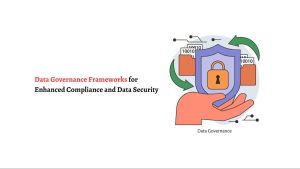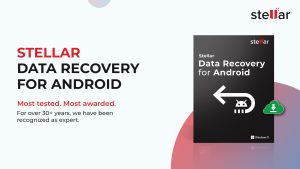MongoDB Versus MySQL: Which One You Should Go for Your Project?

Every application, either online or offline, runs on data that needs a warehouse for storage. This storage space is known as a Database. For running an application, you need a database that can store and handle these data.
Both relational and non-relational databases have been dominant in the past. But still, as an entrepreneur, you might be wondering which database will align with the tech goals of your organization. At this point in time, it becomes quite difficult for you to choose one database over the other.
Though they come in the market with a fair share of benefits, below is the ranking of the two most popular databases by DB Engine which we are going to compare today.
Both of them are the most popular open-source database. You need to understand the differences and analyze both of these databases on certain parameters. Here, I will highlight the differences between the two that will help you in deciding the right choice of database for your application.
MongoDB Vs MySQL: Database Structure
Let’s have a look at the comparison between the database structure of these two different databases.
MySQL – In the MySQL database, the data’s value is stored in the tables of the MySQL database. Don’t get confused between MySQL and SQL. MySQL is a database, whereas SQL is a query language for accessing and manipulating the database.
The rows in the database have the same structure inside the table, and a specific data type represents the values.
Some of the biggies who uses MySQL –
- US Navy
- Walmart
- NASA
- YouTube
- Netflix
- Spotify
- Paypal
MongoDB – Here, the data is stored in a JSON like documents stored in JSON like documents and comes in a varied structure. However, the query language used here is MongoDB that is used to access data for the database.
MongoDB database is schema-free; it means the mobile app developers can create documents without defining its structure.
Organizations using MongoDB:
- T-Mobile
- Klout
- SurveyMonkey
- Citrix
- Sony
- Foursquare
- Zendesk
- MuleSoft
- InVision
- Hootsuite
MongoDB Vs MySQL: Index Optimization
Databases use the index to find a document quickly. The approach of finding the data with the help of an index is different in these two databases. Sometimes, the index is not found or defined.
MySQL – When the index is not defined here, its database engine scans the complete table to find the relevant rows.
MongoDB – Here, every single document is scanned inside the collection that matches the query statement. This will help you in fetching the data.
MongoDB Vs MySQL: Database Deployment
Here, you will see the operating systems on which you can deploy these databases.
MySQL – It is written in C and C++ languages and contains binaries for OS X, Microsoft Windows, AIX, Linux, FreeBSD, BSDi, IRIX, HP-UX, NetBSD, etc.
MongoDB – MongoDB is written in C, C++, and JavaScript and contains binaries for OS X, Linux, Windows, and Solaris.
MongoDB Vs MySQL: Replication
MySQL – This database supports master-master and master-slave replication. With multi-source replication, you can replicate from multiple users in parallel.
MongoDB – It supports built-in replication, auto-elections, and sharding. Let me explain to you the difference between replication and sharding.
Replication is the method of creating additional copies of the data. It allows for automatic failover to another node. Sharding allows for horizontal scaling of data by breaking up large tables into smaller chunks called a shard.
MongoDB Vs MySQL: Support Offerings
MySQL – It offers Oracle lifetime support at three levels:
- Premiere for versions 1 – 5 years old
- Extended for versions 6 – 8 years old
- Sustain for versions 9+ years old
Each level offers 24*7 tech support that includes access to a complete knowledge base, bugs fixing, maintenance releases, updates, and patches.
Mongo DB – It provides enterprise-grade support, which provides round the clock support in addition to extended lifecycle support. You can also upgrade to the newer version in the future.
MongoDB Vs MySQL: Developers Centric/ Productivity
MySQL – It uses a very rigid table structure model, which makes it difficult to develop applications using this.
MongoDB – MongoDB speeds up an application’s development phase by 4 to 5 times compared to MySQL. The data must have the flexibility of JSON documents.
It documents the map to the object-oriented programming languages to easily visualize how the application data is mapped to the data in a database.
MongoDB Vs MySQL: Speed and Performance
MySQL – It supports atomic transactions where you can have multiple operations inside a transaction. However, it is slower than MongoDB because it is difficult to handle a large chunk of unstructured data. The reason being the data is spread across multiple tables that become hard to access it.
MongoDB – It controls a large volume of unrestricted data because it stores the entity data on a single document. The user can read and write data in one place.
MongoDB Vs MySQL: Security Level
Mongo DB – MongoDB offers control over a variable set of privileges and ensures that the document is read by the intended clients only. Users using MongoDB will find it feasible to use TLS(Transport Security Layer) and SSL(Secure Socket Layers) for encryption of ends.
It includes significant security features like auditing, authentication, and authorization.
MySQL – In MySQL, the security model used is based on privilege. This means that a user authenticated by MySQL can benefit a database like INSERT, UPDATE, SELECT, and CREATE.
When to use MongoDB for your business?
- When your business requires high data availability and instant recovery of data.
- In MongoDB, no schema definition is required, so if you are working with an unstable schema, the schema migration cost can be lowered.
- If you mainly deal with cloud-based services, MongoDB will be the best choice for you. Here, the architecture is enabled by sharding, which aligns with the agility and horizontal scaling offered through cloud computing.
When shall you choose MySQL for your business?
- If you are on a low budget and new to the business, MySQL has a high-performance ability.
- If you have a fixed schema.
- When you are giving top priority to data security.
- If you require a high transaction rate.
- If you have a data structure that is not going to alter over a period.
Conclusion
Why should you use MongoDB instead of MySQL?
Most of the companies have migrated from MYSQL to MongoDB. Mainly firms of various sizes and scales prefer MongoDB. You can build applications in less time with the MongoDB database, eliminating the complicated Object Relational Mapping (ORM) Layer.
MongoDB is the best choice for deployment and can be scaled easily without any downtime in terms of data volume.
While coming to SQL, the user needs to carry out custom engineering tasks to achieve scaling with MySQL. This is the reason why most of the companies prefer MongoDB over MySQL.
I feel that this blog will help you make the right choice between MySQL and MongoDB. Both the databases serve a different niche and all you need to consider is your project goals while making any such decision.
If you still have any queries, get in touch with the top software consulting company in India who will suggest the best database as per your project requirement.






